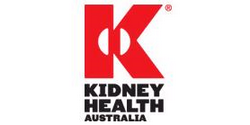Copy of `Kidney Health Australia - Glossary`
The wordlist doesn't exist anymore, or, the website doesn't exist anymore. On this page you can find a copy of the original information. The information may have been taken offline because it is outdated.
|
|
|
Kidney Health Australia - Glossary
Category: Health and Medicine > Kidneys
Date & country: 23/04/2009, AU
Words: 141
|
Percent of kidney function:An estimate of the level that each kidney is working. A GFR of 100 milliliters per minute (mL/min) is in the normal range so it is useful to say that 100 mL/min is about equal to '100% kidney function'. A GFR of 30 mL/min could be called '30% kidney function'.
Peritoneal cavityThe space in the abdomen (belly) holding the intestines and other organs.
Peritoneal dialysis(PD) A treatment for kidney failure where dialysis fluid is moved in and out of the peritoneal cavity to remove wastes and fluid from the blood. (See CAPD and CCDP)
PeritoneumA very, thin sac or membrane that surrounds the organs on the inside of the abdomen or peritoneal cavity.
PeritonitisA bacterial infection in the peritoneum.
PermacathAn access device for haemodialysis. It is a catheter that is usually placed in the neck or groin so that blood can flow to the artificial kidney or dialyser.
PhosphateA mineral together with calcium, that keeps your bones strong and healthy. The kidneys help to control the amount of phosphate in the body. Phosphate helps to keep the bones and other body parts strong and healthy. Too much phosphate causes itching and pain in the joints, such as the knees, elbows and ankles. When the kidneys are not functioning ...
Phosphate binderYou may be prescribed medicine called phosphate binders that combine with phosphate in your intestines so it will pass out of your body with the faeces (poo). It is important to take phosphate binders with your meals and snacks.
Polycystic Kidney DiseaseAn inherited kidney disease that produces fluid-filled cysts in the kidneys.
PotassiumAn essential mineral, which helps nerve endings and muscles to work. If your level of potassium is too high or low, it can cause an irregular heartbeat. In fact, very high potassium levels may cause the heart to stop. The usual range of potassium is 3.5 - 5.0mmol/L.
ProteinA nutrient that you get from good that builds, repairs and maintains body tissue. It also helps to fight infections and heal wounds.
ProteinuriaOccurs when there are abnormal levels of protein in the urine. Usually, protein is not removed when the kidneys filter waste from the blood. However, when the kidneys are damaged protein leaks through the damaged filters and leaves in the urine, along with the waste. The appearance of protein in the urine may be the first sign of an otherwise sil...
RecipientA person who gets a new body organ, such as a kidney.
Reflux nephropathyA kidney condition caused by the backflow of urine from the bladder up the ureters into the kidney that affects children.
RenalAnother word for kidney or about the kidneys.
Renal biopsyA needle is passed through your skin to the kidney. A small piece of kidney tissue is removed for
Renal failureFailure of kidney function.
ReninA chemical made by the kidneys that helps control blood pressure.
SaltAffects the amount of fluid the body retains and increases thirst. If you have a kidney problem, too much salt can make you drink more than your kidneys can remove and may cause:
SodiumA mineral in the body, which is often called ''salt'. The kidneys help to control the amount of sodium in the body. Sodium helps to control the amount of water in the body.
SteroidA medicine that helps to stop swelling and the body damaging a new organ, such as a kidney.
Subclavian veinA blood vessel found underneath the shoulder that is sometimes used for haemodialysis.
Tenckhoff CatheterA tube (catheter) surgically placed through the wall of the abdomen to provide a point for
Tissue typingTests that are done to find out if the white blood cells of a person donating an organ, matches the person who is receiving the organ.
TissueA group of cells of the same type, such as a muscle.
TransferrinA protein in the blood that carries iron.
TransplantTo transfer an organ or portion of tissue from one person to another.
UltrasoundAn instrument is moved over the skin, sending and receiving ultrasound signals to make pictures of the kidneys and bladder. This is test is often used to measure the size of the kidneys.
UraemiaA problem caused by build up of waste products in the blood.
UreaA waste product, which is made as the body breaks down protein. If you have a kidney problem, too much protein causes too much urea and can leave to:
UraemiaA build up of waste in the blood causing nausea, vomiting, tiredness and problems with concentration.
UreterThe tube that connects the kidneys to the bladder.
UrethraThe tube that takes urine (wee) out of the body from the bladder.
UrineThe name for extra fluid and waste products (wee) that are removed from your body by the kidneys.
Urine collectionYou usually collect all your urine (wee) for 24 hours and store it in a special bottle. This urine sample is tested for protein, which helps to determine your kidney function.
UrinalysisA test to measure the amount of protein, blood and other substances in the urine (wee).
UrologyThe study of the urinary system.
VeinA blood vessel returning blood to the heart.
Vitamin DA vitamin that is made in your skin after you have been in the sun. The kidneys change Vitamin D so that your body can use it.
Water RetentionSee fluid retention.
WeeAnother word for urine.

